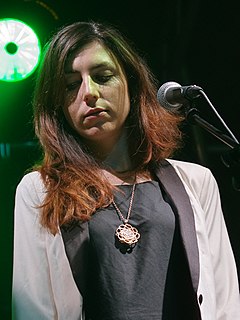Top 89 Quotes & Sayings by Julia Holter
Explore popular quotes and sayings by an American musician Julia Holter.
Last updated on April 18, 2025.
One thing I do like about L.A. is the fact that you can be - whether you're famous or it's just a matter of, like, seeing people you know all the time on the street, you can be pretty anonymous and walk around and, like, not run into people, because it's such a big city and because a lot of people drive.




















